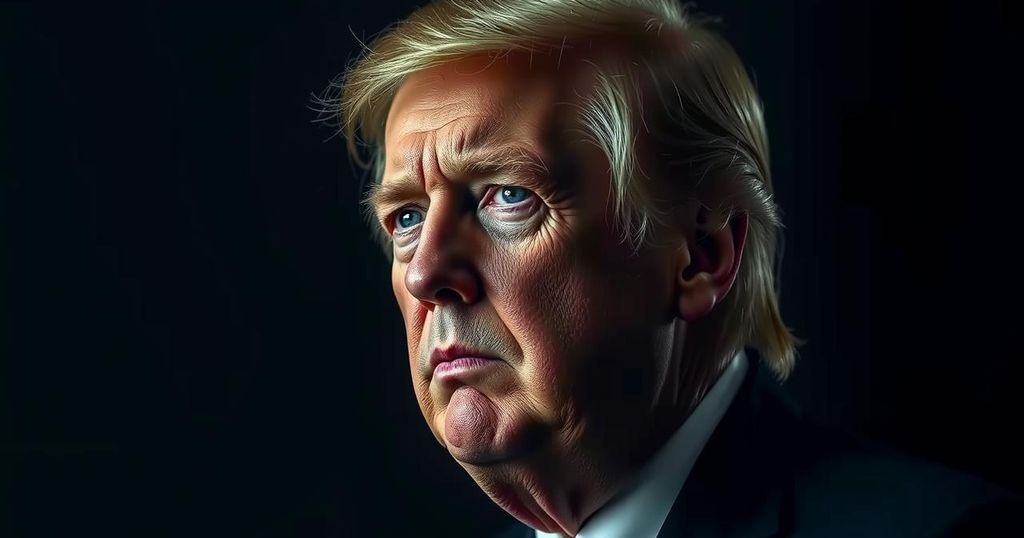The article outlines the growing threat of deepfakes and disinformation in electoral processes, particularly highlighting the situation in the United States. As Australia prepares for its elections, it faces similar risks from AI-generated fake media, which can undermine public trust and democratic integrity. The prevalence of deepfake content, combined with social media dynamics and targeted disinformation, reveals significant vulnerabilities within the political landscape. There is an urgent need for increased public awareness and effective strategies to combat this emerging challenge.
As the United States grapples with the implications of disinformation in its recent elections, Australia finds itself at a crossroads regarding the potential for similar challenges. In the US, AI-generated deepfakes, including manipulated videos, images, and audio, proliferated during the campaign, effectively altering public perception. Deepfakes are particularly alarming because they present fabricated scenarios that can misrepresent political figures and sway audience opinion significantly. The threat is compounded by the rapid advancements in technology that allow for easier creation of such deceptive content.
Australia has already witnessed damaging incidents with deepfake technology, underscoring the risks to its democratic integrity. For example, political figures, including Clare O’Neil and Senator David Pocock, have raised alarms about technology undermining democratic foundations. In addition, real-life impersonation scams have shown the technology’s desperate potential for misuse, highlighting vulnerabilities across various political strata. While some deepfake instances have been lighthearted, the misuse of this technology in political discourse is grave and warrants serious attention.
The detrimental impact of deepfakes is amplified when campaigns employ targeted disinformation strategies to exploit individual vulnerabilities. Research indicates that deepfakes foster distrust in news media, creating an environment ripe for political manipulation. Surprisingly, studies have revealed that older Australian demographics exhibit a greater susceptibility to deception through deepfake content, as their accuracy in detection diminishes with age. In contrast, younger Australians, likely more attuned to social media dynamics, may be better at distinguishing between real and artificially altered content, although social media’s echo chambers further complicate public perception. Consequently, fostering public awareness about detecting such misinformation stands as a fortification against the growing disinformation crisis.
In the face of these developments, it is evident that deepfakes constitute an existential threat to the democratic values of free and fair elections in Australia. If not mitigated, the Australian electorate may be at risk of enduring the political disinformation epidemic currently undermining public trust in other democratic processes worldwide.
As Australia approaches its own electoral cycle, proactive measures against the rise of AI-generated political disinformation must be prioritized, or the country could unwittingly replicate the distressing experiences observed in the US.
The increasing prevalence of technology in political discourse has sparked concerns about the impact of disinformation on democratic processes. The emergence of AI-generated deepfake media poses a new and significant threat to political integrity, as it enables the spread of misleading information that can distort public perception. This concern has gained particular relevance in light of recent US elections, where deepfakes were utilized to manipulate discourse and mislead voters. With similar electoral dynamics in Australia on the horizon, the country must contend with its own vulnerabilities to this emerging technology, as the necessity for public awareness and effective detection methods rises. The rise of social media platforms has facilitated the rapid dissemination of deepfake content, compounding the challenges statistics reveal about identifying deepfakes accurately. Given the precarious state of democratic elections globally, Australia must consider the normative implications of allowing technology like deepfakes to proliferate unchecked.
In summation, Australia must prepare itself against the imminent threat posed by deepfakes and politically motivated disinformation as it approaches its own elections. The alarming success of deepfake technology in manipulating public opinion in the United States serves as a cautionary tale for Australia, bolstered by the increase of misinformation potentially reaching voters through social media. It is vital that officials and the electorate remain vigilant, adopting robust measures to enhance public awareness and detection capabilities regarding deepfake media. The preservation of democratic ideals hinges on the ability to maintain an informed electorate, capable of discerning the truth amidst the technological deceptions prevalent today.
Original Source: theconversation.com






